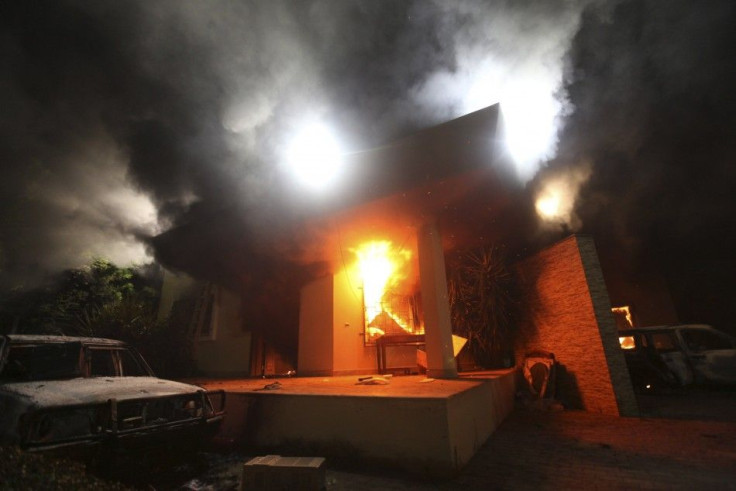Newly Released Benghazi Emails Reveal Talking Points Timeline [FULL TEXT TRANSCRIPT]
The White House released 100 pages of emails Wednesday that reveal new details about the timeline of when and how talking points were written after the Sept. 11 attack on the American embassy in Benghazi, Libya.

The talking points have become a huge point of controversy, as Republicans have been hammering the administration for months about an alleged initial attempt in the aftermath of the attack, which killed four Americans, to cover up the fact that it was a terrorist attack.
The Obama administration initially stated that the attack came at the hands of protesters angered by an anti-Muslim video, but eventually changed its tune, stating that it was in fact a premeditated terrorist attack.
The emails released Wednesday are between the White House, FBI, CIA, State Department and Justice Department, and they detail the creation and massaging of talking points for lawmakers and officials to use when discussing the Benghazi attack. They eventually made their way to United Nations Ambassador Susan Rice, who used them to form the basis of her remarks on Sunday TV appearances, during which critics say she attempted to cover up the terrorist connection.
The talking points were initially written by the CIA, and they served as the basis for what became the lines used by officials in the attack's aftermath. New details revealed in the emails released Wednesday appear to counter the argument that the State Department crafted them in a manner aimed at lessening the potential political fallout from the administration's failure to protect its embassy in Libya as the 2012 presidential election neared.
The first draft of the talking points included references to al-Qaeda being involved in the Benghazi attack. But the e-mails appear to show that officials were wary to mention the group by name as the FBI continued its investigation into the circumstances surrounding the attack, and that the references to it were subsequently removed.
In the newly released, partially redacted emails, the CIA appears to have been the first to mention the protests in Libya, which dispels the assertion that the Obama administration added the protest narrative in order to hide the terrorist connection.
However, the White House did play a real role in the crafting of the talking points, which goes against its assertion that it had little to do with the creation of them.
And, perhaps most damningly for the Obama administration, the emails reveal that then-CIA Director David Patraeus raised concerns about the less-specific version of the talking points issued to lawmakers and officials who used them to prepare for press appearances on the topic of the Benghazi attacks.
The State Department also raised red flags, according to one of the newly released emails.
"The State Department had major reservations with much or most of the document," an unidentified official wrote.
Read the full text of the 100 pages of emails released by the White House on Wednesday below:
White House Benghazi Emails by margafret
© Copyright IBTimes 2025. All rights reserved.





















